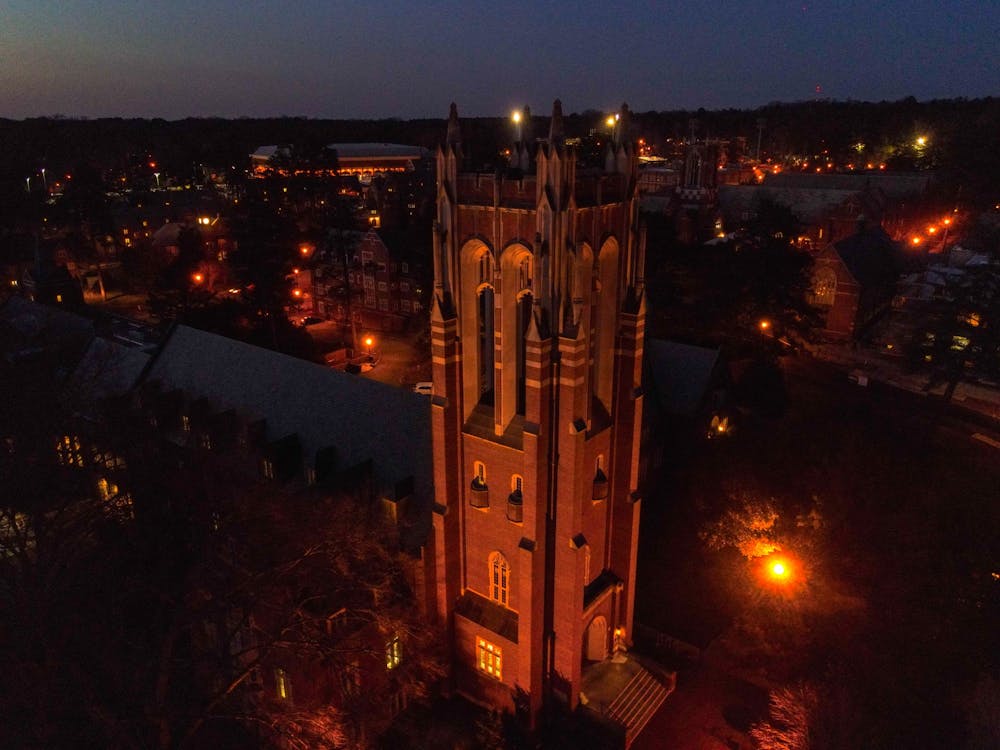Over 360,000 lines of written code, collaborations with institutions across the nation and hours spent scouring national archives for forgotten material — these are just some of the accomplishments achieved by the University of Richmond’s Digital Scholarship Lab.
Established in 2007 by former UR President Edward Ayers, the digital humanities research project has won numerous awards and had its work and research featured in many publications, including The Washington Post and The New York Times.
“The DSL originated from Ed Ayers’ arrival because he wanted the university that he was going to lead to have some presence in the digital humanities and digital history space,” said Robert Nelson, an American Studies professor and the lab’s director.
Ayers himself is a leader in the digital humanities, and his work is recognized by organizations such as the Virginia Center for Digital History. He is also the recipient of the 2014 Boyer Award from the Association of American Colleges and Universities.
In addition to faculty members, undergraduate student interns are an integral part of the research and project creation process.
“Students are unbelievably important… it cannot be stressed enough how important [they] have been to our work,” said Nelson, who has worked in the lab since 2008.
The lab has provided opportunities for students in a variety of disciplines, said Justin Madron, the associate director of the lab and geographic information systems project manager.
“We’re lucky to be at a university that really encourages that type of interdisciplinary work experience and research because we have students from all over, [from] the humanities to biology to mathematics to computer science to geography and healthcare studies,” Madron said.
Junior Josie Holland has done lab research that has contributed to such projects as Mapping Inequality and Electing the Houses of Representatives, she said. The projects included mapping data points onto an interactive digital map of the United States.
“The coolest thing for me is when I’m just reading an article — maybe for class, maybe for fun — and I realize that they quote one of my bosses or there’s a picture of a map that I worked on,” Holland said, adding that many of the authors use the DSL’s visualizations to support their research and claims.
The lab’s mission is to “reach a wide audience by developing projects that integrate thoughtful interpretation in the humanities and social sciences with innovations in new media,” according to the website.
For many people, important data is easier to understand when it is presented visually,
Enjoy what you're reading?
Signup for our newsletter
Madron said.
“[It helps] people understand very complex and sometimes hard subjects like redlining or forced migration of enslaved people,” he said. “It sticks with them longer.”
Many of the projects mapped and created by the lab using archived material and data analyze the origins of such contemporary problems as health disparities and police violence. Projects such as Redlining Richmond highlight how the discriminatory practice has been used to label ethnic neighborhoods as dangerous, and therefore, unworthy of investment from the city or state.
“The fact that [redlining] is a foundation for all of these social issues leads me to believe that the most effective way of addressing those issues is education… and even though redlining was something that happened in [the 1930s], the effects are still felt today,” Holland said.
Beyond organizing and reporting data, students and faculty within the lab say they also focus on supporting research and initiatives that can lead to tangible change.
“We’re dealing with stuff that has never been done before,” Madron said. “Most of the time, we’re dealing with archives or historical data that hasn't been used or touched — we’re actually creating it for the first time.”
Contact contributor Hayley Simms hayley.simms@richmond.edu.
Support independent student media
You can make a tax-deductible donation by clicking the button below, which takes you to our secure PayPal account. The page is set up to receive contributions in whatever amount you designate. We look forward to using the money we raise to further our mission of providing honest and accurate information to students, faculty, staff, alumni and others in the general public.
Donate Now



